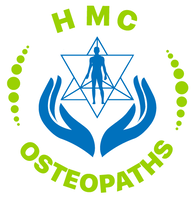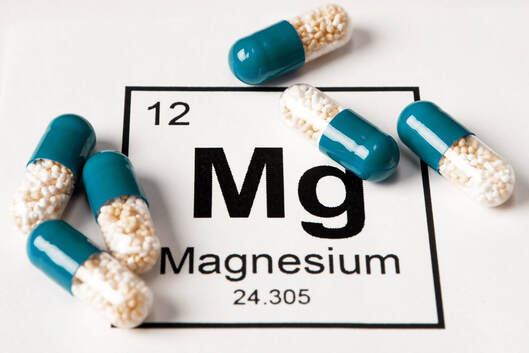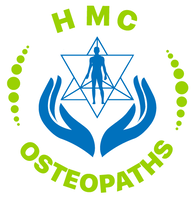|
By Liam Neyland Recently I have had many patients ask me whether they should be taking magnesium supplements or increase their dietary intake. Magnesium is a crucial nutrient for the body’s health but has recently been labelled as a one size fits all cure. Today I am going to explain what the relationship between the body and magnesium, as well as the many benefits you may receive when increasing your daily intake. The relationship between magnesium and your body Magnesium in simple terms is one of the major minerals that the body relies on to function. As a matter of fact, every single cell in your body at any one time has some form of magnesium present, which it needs to properly function. One of the main roles that magnesium provides is to act as a cofactor (helper molecule) where it is involved in more then 600 reactions in the body. The main reactions magnesium plays a role in are energy production, protein formation, gene maintenance, muscle contractions and the regulation of the nervous system. Possible Benefits of High Magnesium Intake Boost Exercise Performance Magnesium is a major mineral used in the contraction of muscles all throughout the body. One of the major functions that magnesium has during muscle contraction is helping move blood sugar into the muscle, fuelling our overall muscle stamina. Magnesium also helps dispose of lactate which builds up during exercise and is the main cause of muscle fatigue. Help with depression Just like other parts of the body, magnesium plays critical roles in how our brain functions and it’s overall health. One of the more important roles magnesium conducts is the maintenance of NMDA receptors, which act as transmitters from the brain to the body and are needed for brain development, learning and memory. Certain studies have shown that an increased magnesium uptake can increase brain function, mood and even decrease risk of depression. Promote positive heart health Many things can play a role in overall heart health ranging from increased exercise, healthier diet and decreased alcohol intake, to name a few. However, increasing natural magnesium levels is underrated in the medical industry. Studies have shown links between high magnesium intake to lowered heart disease, stroke and high blood pressure. Other noteworthy benefits: • Helps fight inflammation by reducing CRP and interleukin-6 markers • Studies have shown a decrease in migraine severity • Premenstrual syndrome (PMS) symptoms can be relieved with magnesium intake • Increased bone strength and decreased risk of osteoporosis • Improved sleep quality and treatment of symptoms of certain sleep issues. • Helps alleviate symptoms of anxiety and stress  How can I improve my magnesium intake? One of the easier and most effective ways to increase our magnesium intake is to simply eat more foods that contain high levels of magnesium. The following foods are all rich in magnesium with some being higher in value depending on how you cook them. Foods like pumpkin seeds, chia seeds, spinach, almonds, cashews, edamame, peanut butter, black beans, salmon and brown rice are some of the heavyweights when it comes to magnesium intake. If for any reason introducing these foods may not be possible then you can simply balance out your intake through the use of supplements.  What are some negative effects of Magnesium? Magnesium on it’s own has little to no side effects when taken within it’s recommended daily intake. It has been recorded that an increase in magnesium through supplementation can cause nausea, vomiting and diarrhoea but these side effects are very rare. As long as the recommended 350mg daily limit is followed the likelihood of side effects are rare. It should be mentioned that unfortunately increasing your magnesium intake through supplementation is not viable for everyone, as some medications can have negative interactions. It is always recommended to discuss with your doctor if magnesium supplementation would be a healthy and safe option. How can my osteopath help? If you feel magnesium may be helpful in treating whatever ailment you could be suffering from but would like a second opinion, the Osteopaths at HMC are more than happy to answer any questions that you may have. References Magnesium in Human Health and Disease - Google Books Magnesium in Hypertension, Cardiovascular Disease, Metabolic Syndrome, and Other Conditions: A Review - Champagne - 2008 - Nutrition in Clinical Practice - Wiley Online Library Side Effects Of Too Much Magnesium - TheFitnessManual Most Common Magnesium Side Effects for Health - Kobmel 12 Magnesium Health Benefits (healthline.com)
1 Comment
17/6/2023 10:14:48 pm
The article "Do I need to increase my Magnesium intake?" provides valuable information on the importance of magnesium in our diet. It discusses the role of magnesium in muscle function, energy production, and nerve function. I appreciate the emphasis on obtaining magnesium from natural food sources and the recommendation to consult with a healthcare professional for personalized advice. Overall, it's a concise and informative article on a relevant topic. Well done!
Reply
Leave a Reply. |
HMC TEAMIf you find something of interest that might suit this space, or would like information on a specific topic, let us know at [email protected]
Archives
December 2023
Categories |


 RSS Feed
RSS Feed
